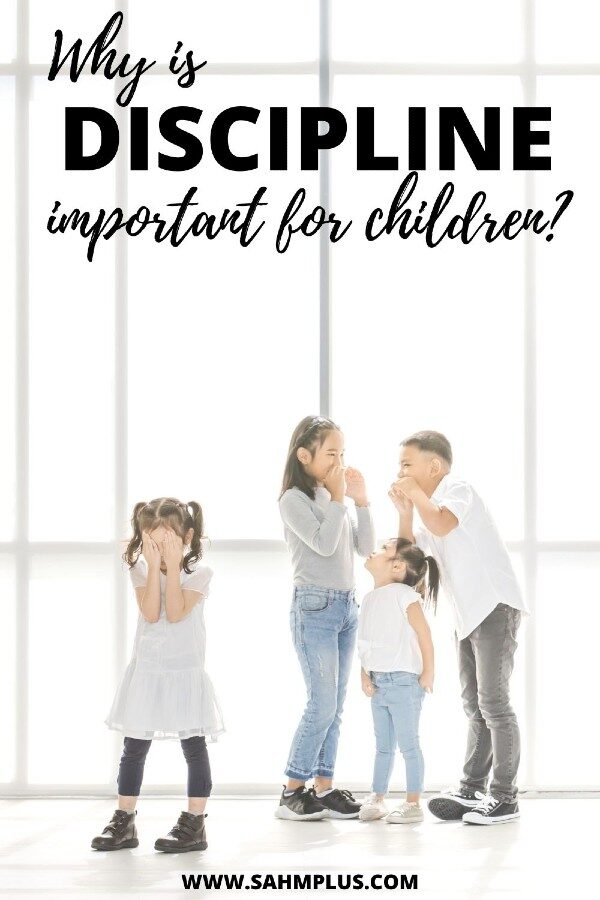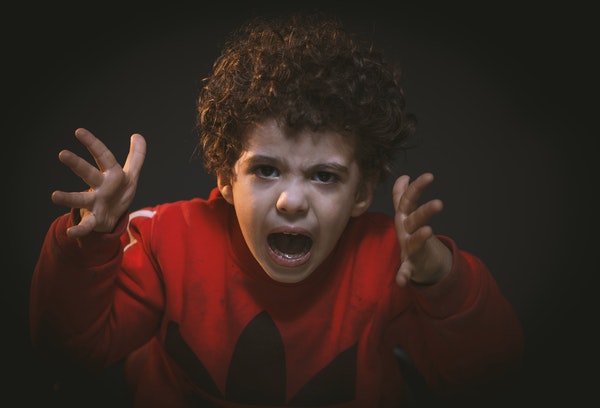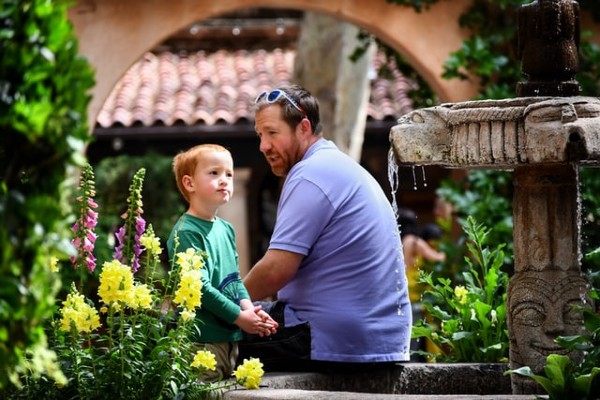Parents can often feel trapped between enjoying time with their children and providing proper discipline. Why is discipline important for a child? In this article, we discuss what discipline is and why discipline is important for a child.
As parents, raising kids can be one of the most fulfilling things that we get to do. The wide range of emotions we experience is part of what makes it a thrilling adventure. Mothers want to be their kid’s best friends, the ones they can share all their problems with and still have the best time of their lives with. No parent likes being the reason their kid is unhappy, so we might want to avoid disciplining them sometimes. Still, discipline is not about picking a fight with your kids, it’s about teaching them to control their behavior, but we know that we are also responsible for raising good kids that would add value to society.
There are many issues that mothers face when raising a child, but one of the important ones that we would be focusing on is discipline. The importance of child discipline cannot be overstated. As parents, it is our duty to teach our children the acceptable pattern of behavior required to coexist with others and be good people in general. No mom has the perfect handbook on disciplining a child because every child is unique and requires their unique system.
In this article, I’ll be touching on what discipline really is, why it is important to discipline a child, the three types of discipline, how lack of discipline can affect a child and much more. Keep reading, because you don’t want to miss out on all the things I have in store for you.

What is Discipline?
Many times, people use discipline and punishment interchangeably, but these words have different meanings. Although sometimes discipline entails some punishment, it does not mean that they are the same. The word “discipline” is gotten from the Latin word “discipulus,” which translates to “to learn.” So disciplining your child is “to teach” your child, and teaching requires time, attention, patience, and an understanding of your child.
Physical punishment is a form of negative discipline; inflicting pain on a child is not a corrective measure; in the long term, the child gets used to the pain and goes ahead to do what they want, and this is not what you want for your child.
When practiced correctly, discipline uses various approaches, including the Consequence/Reward jar system, Models, and Positive punishment. Proper discipline would help a child to associate actions and consequences. Some people might ask, “why is it important to discipline your child?” Keep reading, your answer lies ahead.
5 Reasons Why Discipline is Important For a Child
Child discipline is about teaching a child the right way to behave; that way they do not develop behavioral disorders, and then there is no need for punishments. Discipline is essential in a growing child’s life, not only because it teaches them to be responsible adults, but it also has numerous benefits for a child’s development. Some of these benefits include safety, emotional stability, proper decision-making skills, and many more. Here are a few reasons why discipline is important for a child:
- Discipline helps a child develop self-discipline.
You won’t always be with your child, but you want them always to be well-behaved. Disciplining your child would develop their self-discipline and self-control skills. They know that “Mom does not like it when I do this” when they have that at the back of their minds; they can control themselves even when you are not there with them.
- Discipline develops good decision-making skills.
By using discipline to teach them, you are teaching them to make good decisions. This way, they know that actions have consequences. This allows them to imbibe the difference between good and bad from a very young age.
- Discipline helps your child learn to control their emotions.
When you refuse to give in to your child’s tears on your next trip to the mall, they quickly realize that perhaps tears would not always give them what they want or when your child is having difficulties performing a task, and you praise them, it teaches them to cope with frustration better.
Putting your child in a time out when they misbehave would allow them to reflect on their behavior and know that such behavior is unacceptable. That way, when such a situation comes up again, they can control their emotions and react better to the problem.
- Discipline can help a child manage anxiety.
Children are children, and you have to make decisions for them to help them develop properly. When you put a child who barely knows anything in a situation where they have to make decisions for themselves at such an early stage, it psychologically affects them.
Children have to grow in a safe and consistent environment; putting them in leadership positions at such tender ages can cause them to panic because they do not know what they are doing.
Even as adults, we panic when we do not know what to do. Imagine what that would be like for a child.
- Disciplining your kids can ensure their safety.
Every parent wants to keep their kids safe. Discipline is teaching your kids that they are not allowed to talk to strangers, but it’s not just telling them what they can or cannot do. We should try to explain why they should not do such things.
Remember, kids love to test rules, but you don’t want them testing it out with something that could potentially harm them, so when they know what the consequences of their actions could be, they are less likely to try it out.
What Are the 3 Types of Discipline?
It is important to remember that no general rulebook applies to all children; what works for child “A” might not work for child “B.” Every child is unique and special.
The primary determining factor of your preferred type of discipline should be your understanding of your child. Understanding your child would allow you to select the best disciplinary style best suited to them. For example, if you still have a toddler, it is important to note that the child is simply ignorant at this age, and when they misbehave, they are not doing so to test you or get on your nerves. The best disciplinary measure to give this child is a simple correction or constantly reminding them of the right thing to do until you begin to see them do it without being told. The case might be different with a teenager, that is why you need to access your child’s age and behavior so you can know what strategy would suit them.
New parenting books are emerging on a daily basis, each with a different type of discipline. Generally, there are different types of discipline such as Positive Discipline, Gentle Discipline, Boundary-based Discipline, Behavior Modification, and Emotion Coaching. These types of discipline are just interpretations of the three main types of discipline: Corrective Discipline, Supportive Discipline, and Preventative Discipline.
Various child education experts have recommended these three types of discipline. These types of discipline are what teachers use to teach children while they are in the classroom, and parents are encouraged to adopt this system.
1. Preventative Discipline
This is the type of discipline that has to do with establishing rules that children must obey. This includes guidelines, code of conduct. They are put in place to prevent the children from misbehaving. These rules are there to tell the child what to do. This may include,
- Telling your children what behavior is acceptable and what behavior is bad.
- Telling your children the consequences of bad behavior.
- Rewarding good behavior. You can find some reward ideas here.
This is a safe, non-confrontational approach to teach the children that actions have consequences. This way, the children know what to expect.
2. Supportive Discipline
This type of discipline comes into play after the child has disobeyed an established rule. It is not the time to punish the child. It may be the case that the child forgot this rule, and a simple reminder would suffice. Supportive discipline differs from punishment because it allows a child to decide to correct their behavior before punishment is required. This may include:
- Verbal/ Non-verbal warnings
- Redirecting or Reminding the child of the rules they are disobeying
- An immediate reaction to the bad behavior.
3. Corrective Discipline
This type of discipline comes into play after the supportive discipline measure has failed. The child has refused to change their bad behavior. This is when you may now decide to punish the child for their misbehavior.

What Happens to Children Raised Without Discipline?
You might want to avoid disciplining your child because you feel guilty for not giving them what they want or you’re not looking forward to a tantrum. However, as a parent, you must commit to putting your children on the right path for their futures.
This are the effects of not discipling your child:
1. Undeveloped Coping Skills
When a child is undisciplined, they miss out on the chance to develop skills that would help them deal with life’s challenges on their own. They become so dependent on their parents to help them solve everything. This can make them feel stressed and overwhelmed when you are not around. If they continue to feel like this repeatedly, it can lead to a mental collapse.
You want to raise a strong, independent king/queen that would be able to overcome life’s challenges.
2. Lack of Boundaries
Boundaries are essential, and this is why other people would set them to protect themselves. An undisciplined child would not know such limits; They would always move around not knowing how to respect people’s choices. This is because they are not familiar with rules and respect, which would make them struggle in social settings.
3. Laziness
A child that is used to getting everything they want would have difficulties keeping a job. They would always be frustrated that they have to work for what they want because they were not introduced to a work-reward system.
4. Instant Gratification
When you leave kids to do whatever they want, they would continuously pursue instant gratification, thereby failing to develop meaningful pursuits. As adults, we know that this is an unhealthy behavior that can reduce the quality of life. Happiness is realizing that good things take time. Teaching your kids this at an early stage would make them always focused on the positive.

How Do You Discipline a Child?
Here are some disciplinary methods that you can incorporate into your discipline strategies.
- Establish limits for your children and be consistent with those rules. Don’t forget to tell them why it is good for them.
- When they exhibit good behaviors, be sure to praise or reward them.
- When they misbehave, you can put them in a time out to reflect on their behavior.
- Don’t use harsh words on your kids. Verbal abuse can emotionally scar a child. Sometimes it leads to more bad behavior because they start using these words among their peers.
- You can take away some of their privileges and make them know that they have to earn it back when they do what you want them to do.
- Ignore them when they whine for things that you refuse to give them. That would teach them that crying does not get them something. They would seek better alternatives to get what they want.
- Allow for them to experience the natural consequences of their actions, but don’t allow them to get into any real danger. For example, if your child refuses to eat a healthy meal, allow them to feel hungry for a while before offering the healthy food they refused.
One of the most effective ways we’ve managed our children’s’ behaviors was the Reward and Consequence Jar system!

Who is Responsible for a Child’s Discipline?
Remember the saying “Charity begins at home”? A child’s discipline is the responsibility of both parents.
The first people a child comes in contact with is family. Parents should take advantage of these formative years to teach their kids what they want them to know. The parents are with their kids for the majority of their early years. This is the time when it is easiest to imbibe good manners into your kids. It is irresponsible (and unfair) to leave your child’s discipline to an external party like a teacher or a nanny. Kids copy what they can see, and you don’t want them emulating a stranger with whom you don’t share similar values or expectations.
Society should not be responsible for disciplining your child. It is not the responsibility of religious institutions or schools. Society would bear the cost of how your child turns out, and an undisciplined child would not enjoy society’s corrective measures.
Also, both parents should parent as a team in a child’s disciplinary process, it should not be the case where the mother is always the good cop, and the father is the bad cop (or vice versa). Children should not choose favorites between their parents because they want to avert discipline. Both parents should agree on what they want for their children and implement it together.
And while parents are responsible for the majority of disciplinary decisions and actions, it’s okay to expect that rules are respected and followed among extended family members. Grandparents, aunts and uncles can help by instilling consistent expectations when the children are away from home and under their care to solidify the teachings they receive at home.
Parenting is a very demanding task, but the rewards are definitely fulfilling. We sometimes don’t know if we are doing it right, but we hope we are.
Why is discipline important for children? They learn to respect others, including boundaries and maintaining self-control to live as a responsible and productive member of society.
Resources for Child Discipline
Given the importance of child discipline and wanting to create a nurturing and positive atmosphere, I found these books useful when it comes to disciplining my own children:
- Paperback
- Faber, Adele (Author)
- English (Publication Language)
- 384 Pages – 02/07/2012 (Publication Date) – Scribner (Publisher)
- Hardcover Book
- Cline, Foster (Author)
- English (Publication Language)
- 272 Pages – 05/03/2006 (Publication Date) – NavPress Publishing (Publisher)
- Bantam, A nice option for a Book Lover
- Condition : Good
- Ideal for Gifting
- Siegel M.D., Daniel J. (Author)
- English (Publication Language)

![Why Discipline is Important For a Child 7 [By Thomas Phelan] 1-2-3 Magic: 3-Step Discipline for Calm, Effective, and Happy Parenting [Paperback] Best selling book for-|School-Age Children Parenting|](https://m.media-amazon.com/images/I/51NthfwQT4L._SL160_.jpg)



1 comment
Parents need to establish discipline for children, great, thank you for sharing this information. Like posts on your site. And please continue to update new articles.
Comments are closed.